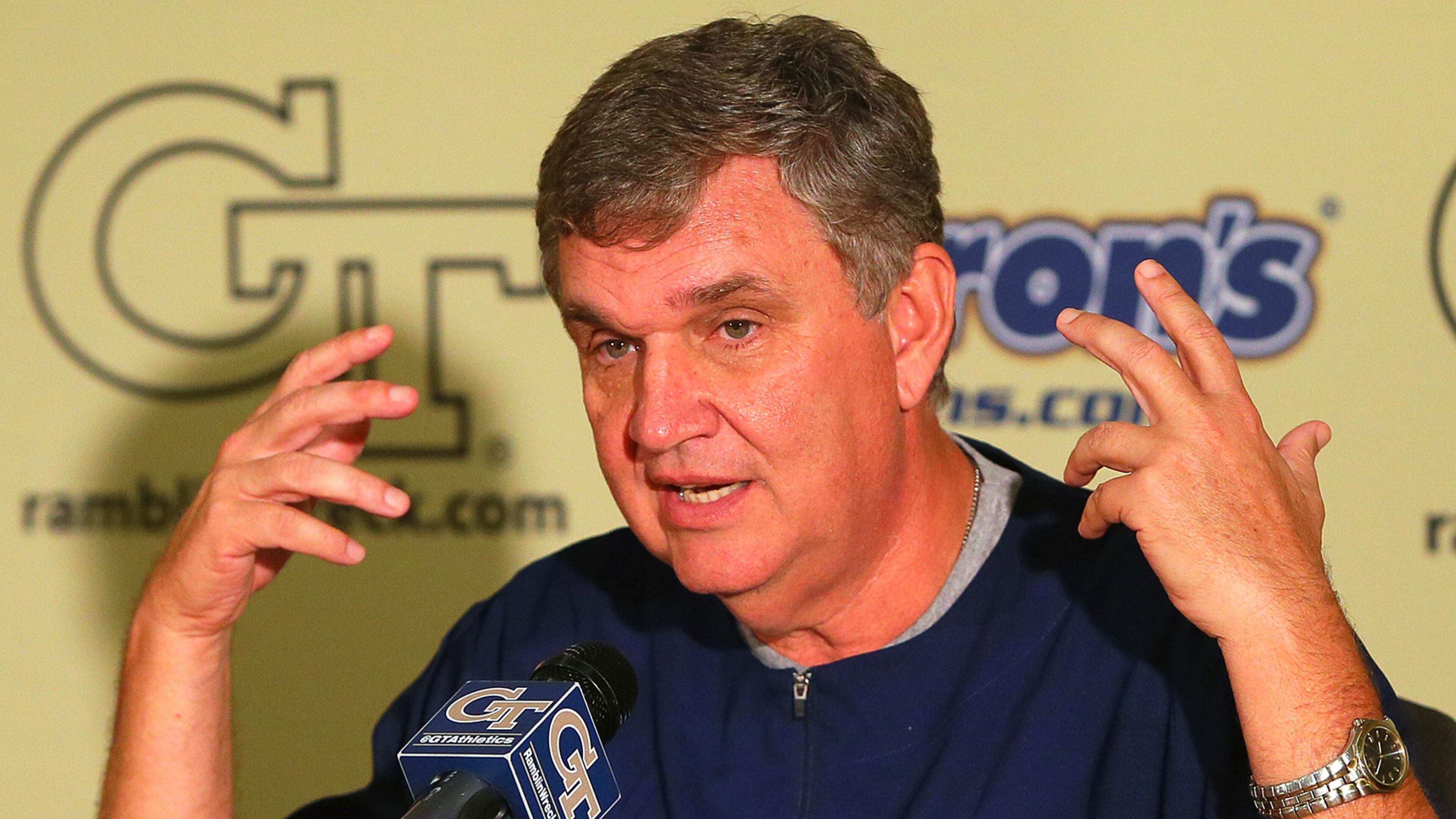Johnson, Richt on negative recruiting

Georgia and Georgia Tech deal with forms of “negative recruiting” while chasing after football prospects, just like every other college.
Negative recruiting is the dark side of the business. When colleges compete against each other for recruits, they have been known to say negative things about the competition to gain an advantage.
Some of the more common things used against Tech on the recruiting trail are: Playing in the team’s triple-option offense will hurt a recruit’s NFL chances, and that the ACC can’t measure up to the SEC.
Yellow Jackets coach Paul Johnson has heard it all on the recruiting trail while trying to attract prospects to Tech since 2007. “I think a lot of it is out there,” he said. “I don’t hear as much about the (offense or SEC) in negative recruiting as I do ‘Your school is hard, and you don’t have any fun.’
“My take on that is that we try to sell Georgia Tech from a football and academic standpoint. To me, it’s one of the few schools in the nation that can offer you a world-class education and the opportunity to play football on the highest level. And that’s what we try to sell.
“I just tell kids ‘Hey, if they are talking about our school, I wouldn’t listen. Listen to what they’ve got to say about their school.’ But negative recruiting is out there. It happens.”
What about all the chatter about Tech’s offense? Johnson indicated how the Jackets have three wide receivers in the NFL, along with running backs and offensive linemen. “So that’s kind of beat down,” he said. “You can just point to the guys playing.”
Tech’s biggest recruiting challenge might be that it is located in the heartland of the SEC, but not in the conference that has won seven consecutive national championships. When the Jackets are in a head-to-head battle with an SEC school for a recruit, the topic will inevitably come up.
“You know, it’s like I tell kids all the time: I’ve never seen the University of the SEC,” Johnson said. “I think you have to evaluate each school on their own merits. So I would certainly hope a recruit would evaluate Alabama differently than the school on the bottom of the league. You don’t get to group them all together, or you shouldn’t. It’s a mistake if you try to do that.”
Meanwhile, Georgia is a member of the SEC, but still has its recruiting issues, too.
After last month’s signing day, one of the Georgia’s top signees, Chamblee High defensive end Davin Bellamy, stated on Twitter that during one of his final in-home visits, another college spent 90 minutes telling him “why I shouldn’t go to Georgia.” Bellamy, who picked Georgia over Tennessee, didn’t identify the school.
“I hate to hear things like that,” Georgia coach Mark Richt said. “You hate the fact that that’s what is going on out there, but you cannot put your head in the sand either. … I always tell (recruits) that recruiting is a pretty friendly business until you choose Georgia or another school. Then, all of sudden, whomever you choose, you get attacked.
“If somebody is talking about their school, I think you should listen to what they say. If they are talking to you about Georgia or another school, I think you have to take it with a grain of salt. Just like, if you hear me talking about another school, if I’m you, I’m not going to listen much to what I have to say.
“But when I tell you about Georgia and the reality of what’s going on at Georgia, then I want you to believe what I’m telling you.”
Here’s what some other college coaches had to say about negative recruiting:
Tennessee's Butch Jones: "A lot of times, people try to take something that they read on the Internet, or something they don't really have knowledge about, and they'll try to turn them into their own circumstances and use it against you. I found that with coming in here. There were a lot of false accusations they (competitors) were using against (Tennessee) in the recruiting process. All I can speak of is what we're going to do here … and we're going to do nothing but sell our football program and present the facts to prospective student-athletes."
Vanderbilt's James Franklin: "I don't necessarily think it's negative recruiting when people do some research and find some facts. I don't have any problem with that. There's no oasis out there. There's no perfect place. Every place has strengths and weaknesses. I have no problem with people doing research and showing it. But when it's just negative recruiting without any facts to back it up, that's the stuff that's a little frustrating when you're dealing with 17-year-old and 18-year-old kids that can be easily influenced …"
Mississippi State's Dan Mullen: "We spend more time in our program talking about what's good … I want (recruits) to call me and say 'Coach, I want to be part of our program.' Not because we've made another program look bad, or other people make a program look bad. I want them really excited about us."



